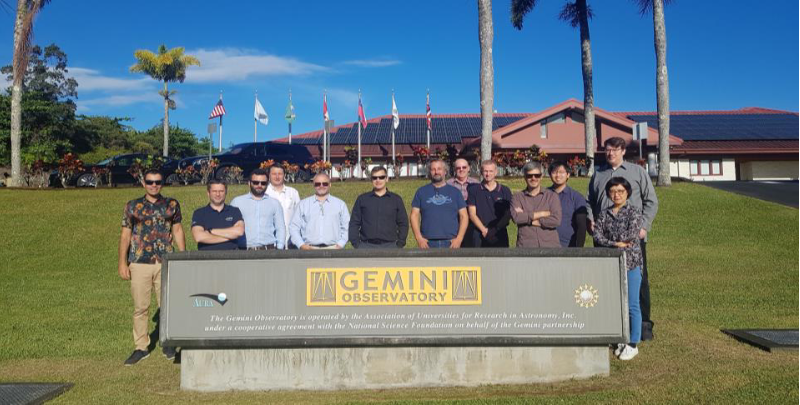
ALPAO : new $15 million Adaptive Optics Bench project will further view of the universe
An Australian-French consortium headed by Macquarie University has won a $15 million AUD competitive international tender process to lead the design and construction of adaptive optics for the Gemini North Telescope in Hawaii, one of the world’s largest and most advanced optical telescopes.
Alongside with Macquarie University’s AAO team, the Adaptive Optics Bench (AOB) project includes the Advanced Instrumentation and Technology Centre (AITC) of the Australian National University, the French Aerospace Laboratory (Office national d’études et de recherches aérospatiales, or ONERA), the Astrophysics Laboratory of Marseille (Laboratoire d’Astrophysique de Marseille, or LAM), the Observatoire de Haute Provence (OHP) and French specialist optical manufacturer ALPAO. The partnership also includes consulting firms Space ODT (Portugal), Mersenne Optical Consulting (New Zealand), and Wakea Consulting (France).
“This is a significant achievement for the University and for international astronomy community,” says Macquarie University’s Distinguished Professor Jon Lawrence, Head of Instrumentation at the AAO and Principal Investigator for the AOB project.
“The adaptive optics technology we are developing will remove the blur from turbulence in our atmosphere, so astronomers can see sharper, cleaner images through the 8.1-metre Gemini Telescope, opening up new possibilities for scientific discovery. The Gemini Telescope is one of the world’s most advanced optical telescopes, and this project will make it even more powerful. We assembled a team of world-leading experts, and our design was chosen for its innovative approach and efficient techniques to enable high throughput of light,” says Professor Lawrence.
Julien Charton, ALPAO’s Scientific Director and Co-founder says:
“ALPAO is very proud to be contribute to this long-term project and to the global effort to advance our understanding and true vision of the universe. Once again, this project highlights the recognized expertise of ALPAO teams in achieving high-level, international goals and pushing the limits of the next generation Adaptive Optics systems.”
The decision to award the bid came after a 12-month competitive Phase A study that saw three international teams develop a proposed design, detailed build schedule and costing.
The project is to be funded by the US National Science Foundation via AURA, the Association of Universities for Research in Astronomy.
About ALPAO | https://www.alpao.com/
The aim of ALPAO, leader in optical wavefront control, is to revolutionize optics by removing aberrations. ALPAO has been designing and marketing a full range of adaptive optical products for research and industry since 2008. ALPAO markets deformable mirrors, wavefront sensors and software. ALPAO products are tailor-made for various applications such as astronomy, ophthalmology, microscopy, wireless optical communications and laser technologies.
With over 10 years of experience in adaptive optics, ALPAO deformable mirrors offer large strokes, high dynamic motion, high resolution images and very good optical quality. ALPAO is an international company with customers over 4 continents in more than 20 countries.
Over 90% of its turnover comes from export. ALPAO is also involved in a specific French program to build with other companies, from various economic fields, a business climate convention
